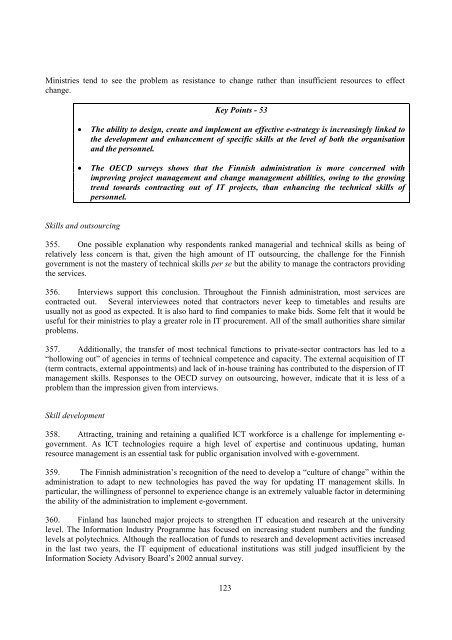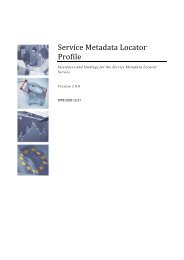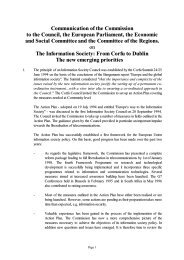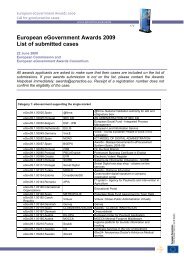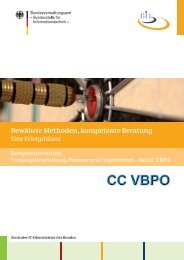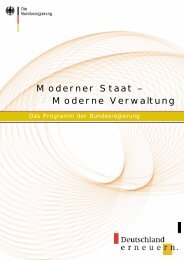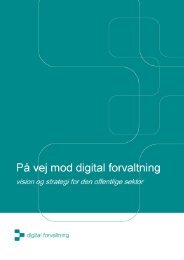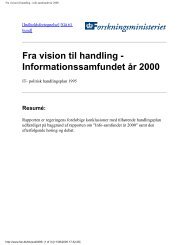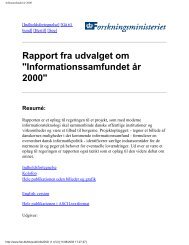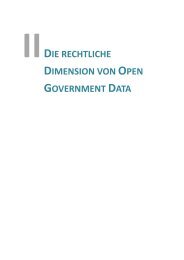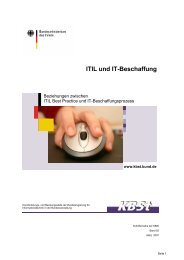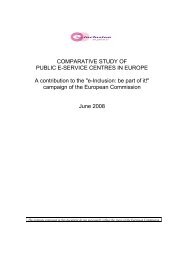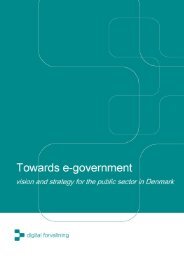e-GOVERNMENT IN FINLAND - ePractice.eu
e-GOVERNMENT IN FINLAND - ePractice.eu
e-GOVERNMENT IN FINLAND - ePractice.eu
You also want an ePaper? Increase the reach of your titles
YUMPU automatically turns print PDFs into web optimized ePapers that Google loves.
Ministries tend to see the problem as resistance to change rather than insufficient resources to effect<br />
change.<br />
Key Points - 53<br />
x The ability to design, create and implement an effective e-strategy is increasingly linked to<br />
the development and enhancement of specific skills at the level of both the organisation<br />
and the personnel.<br />
x The OECD surveys shows that the Finnish administration is more concerned with<br />
improving project management and change management abilities, owing to the growing<br />
trend towards contracting out of IT projects, than enhancing the technical skills of<br />
personnel.<br />
Skills and outsourcing<br />
355. One possible explanation why respondents ranked managerial and technical skills as being of<br />
relatively less concern is that, given the high amount of IT outsourcing, the challenge for the Finnish<br />
government is not the mastery of technical skills per se but the ability to manage the contractors providing<br />
the services.<br />
356. Interviews support this conclusion. Throughout the Finnish administration, most services are<br />
contracted out. Several interviewees noted that contractors never keep to timetables and results are<br />
usually not as good as expected. It is also hard to find companies to make bids. Some felt that it would be<br />
useful for their ministries to play a greater role in IT procurement. All of the small authorities share similar<br />
problems.<br />
357. Additionally, the transfer of most technical functions to private-sector contractors has led to a<br />
“hollowing out” of agencies in terms of technical competence and capacity. The external acquisition of IT<br />
(term contracts, external appointments) and lack of in-house training has contributed to the dispersion of IT<br />
management skills. Responses to the OECD survey on outsourcing, however, indicate that it is less of a<br />
problem than the impression given from interviews.<br />
Skill development<br />
358. Attracting, training and retaining a qualified ICT workforce is a challenge for implementing egovernment.<br />
As ICT technologies require a high level of expertise and continuous updating, human<br />
resource management is an essential task for public organisation involved with e-government.<br />
359. The Finnish administration’s recognition of the need to develop a “culture of change” within the<br />
administration to adapt to new technologies has paved the way for updating IT management skills. In<br />
particular, the willingness of personnel to experience change is an extremely valuable factor in determining<br />
the ability of the administration to implement e-government.<br />
360. Finland has launched major projects to strengthen IT education and research at the university<br />
level. The Information Industry Programme has focused on increasing student numbers and the funding<br />
levels at polytechnics. Although the reallocation of funds to research and development activities increased<br />
in the last two years, the IT equipment of educational institutions was still judged insufficient by the<br />
Information Society Advisory Board’s 2002 annual survey.<br />
123


